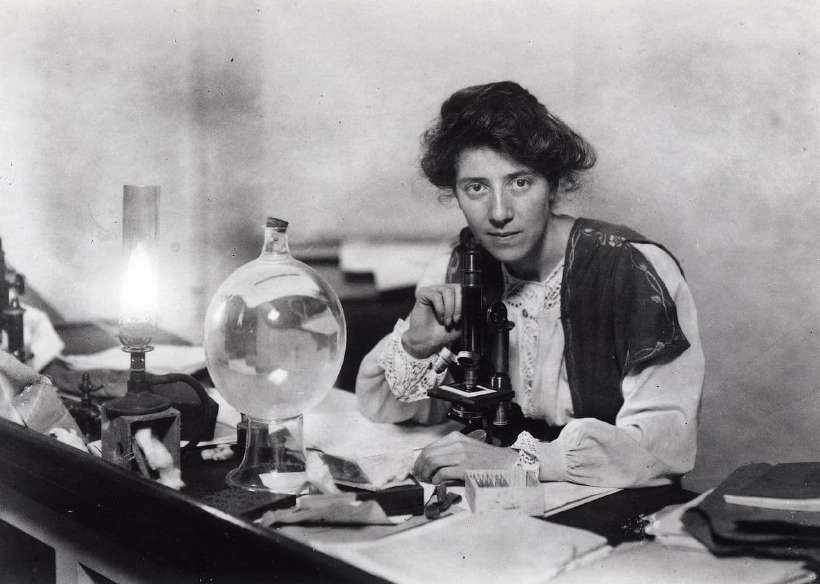Marie Stopes: A Guiding Light For The Women of England
Home / Non Fiction for Kids / Biographies for Kids / Marie Stopes: A Guiding Light For The Women of England
Marie Stopes (1880 – 1958):
Nearly 100 years ago, one woman took it upon herself to help women take control of their own bodies. To decide whether they wanted children, and when they wanted children. At a time when it was looked down upon, Marie Stopes helped a generation of English women safely discuss sex, pregnancy, and birth control.
Birth control refers to methods of preventing a pregnancy. Abortion is a medical procedure that ends a pregnancy. It is estimated that one in four pregnancies a year, end in abortion. Although birth control is available today, access to safe abortion is still not available for the millions of women who need it.

In 19th century England, the situation was even worse. Marie Charlotte Carmichael Stopes was a British researcher and author at the time focussing on reconstructing prehistoric environments. But she also focused on women’s rights. And more than thirty years of working as a scientist, she resigned her teaching position to focus on women’s reproductive rights. She founded the first birth control clinic in Britain and wrote books that gave valuable advice to the population.
Stopes was born in Edinburgh. Her father studied fossils and her mother was an activist for women’s rights. She attended St George’s school for girls and went to college at University College London. She graduated in only two years with a masters degree by attending both the day classes and the night classes. During this time, her work focused on reconstructing prehistoric environments using fossils of plants and flowers. Her work led her to become the first female academic and lecturer at the University of Manchester.
During one of her research trips, she fell in love with Reginald Ruggles Gates and would eventually marry him. Between 1903 and 1935 she published a series of papers that put her at the top of her field. After this, she turned to the issues of women’s rights. Unfortunately, her first marriage ended in a divorce and she wrote a book on how marriage should work. The book was called Love in Marriage. Although it was controversial, once published, it was a bestseller and gave Stopes national recognition. She went on to condense the book into easy to read pamphlets and gave many talks to her adoring fans.
Eventually, she resigned to focus on a birth control clinic that she and her husband had opened. She gathered support from prominent activists, politicians, and activists across England. This was critical in successfully opening the clinic. She taught mothers birth control methods and helped them get over stigmas that existed in English society at the time. Today, her clinic has expanded to 452 clinics that work in over 40 countries.
Stopes also had artistic pursuits. She wrote poems, plays, and novels. One of her plays, Our Ostriches, which covered the role of women in English society as a means to create new life, ran for three months at the Royal Court Theatre.
It would be incomplete to talk about Marie Stopes without talking about Eugenics. Eugenics is a set of beliefs that aims to improve the quality of human genes by excluding those that are judged to be inferior and promoting those judged to be superior. Those deemed to be inferior included criminals, deviants, the disabled, and people who scored low on IQ tests. This movement was eventually adopted by the Nazi movement in Germany and used as an excuse to purge the Jewish race from Germany. In fact, this is one of the primary oppositions to Eugenics. That it is likely to be abused by whoever is in power at the time, as the authority in power gets to decide what is “superior” and what is “inferior”. Other arguments against Eugenics include the fact that forced sterilization is a violation of fundamental human rights as it can result in the loss of genetic diversity. If society is made up of only a small selection of a “type” of people, with only a small selection of genes, then it becomes easy for diseases to affect the entire group.
Through this phase, Marie meant well. She saw the conditions of the disabled and wanted to prevent the condition from passing to their offspring. Upon death, she donated her clinics to the Eugenics society. Marie Stopes was a brilliant researcher who made great contributions to her field of creating environments using the vegetation found in fossils. She went on to help women receive important advice on contraception and marriage. She could not have predicted that Eugenics would be adopted by the Nazis to such horrific ends. Instead, she should be remembered for her tireless effort and contributions to the sciences and to women. The life of Marie was defined by her fight for women. Her work faced violent opposition from Catholics but directly led to the church relaxing its stance against birth control.
Born: 15 October 1880, Edinburgh, England
Died: 2 October 1958, Surrey, England
Education: St. George’s School (1892 - 1894)
Major contribution: Married Love, Britain’s first birth control center, newsletters
More about Marie Stopes
849 words |
9 minutes
Readability:
Grade 9 (14-15 year old children)
Based on Flesch–Kincaid readability scores
Filed under: biographies
Tags: #abortion, #birth control, #eugenics, #nazi germany, #women's empowerment
You may also be interested in these:
Florence Nightingale: The Lady With A Lamp
Emmeline Pankhurst: Leading the battle for Women's right to vote
Subhas Chandra Bose: The first man to set up a government of free India
Pope Benedict XVI Completes Weeklong Tour of Holy Land
A Film on Anne Frank